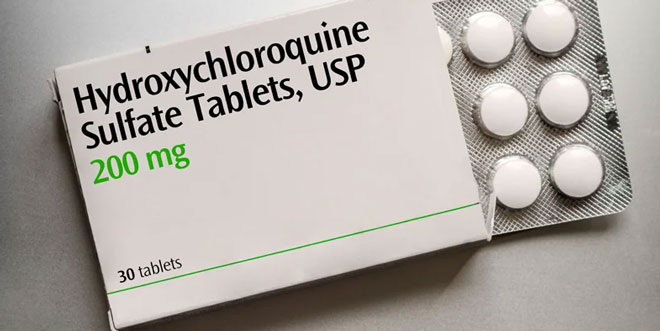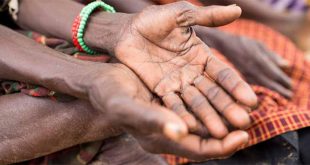
Kampala, Uganda | THE INDEPENDENT | The Ministry of Health is using hydroxychloroquine as a treatment drug for patients that are receiving COVID-19 treatment at three health facilities. The drug is an antimalarial used to treat mild forms of malaria, but can also be used to treat lupus and arthritis.
Health Minister Dr Jane Ruth Aceng told a press conference in Kampala today that even if hydroxychloroquine is still undergoing testing, it has the ability to stop the spread of the disease by stabilizing red blood cells so that uptake of oxygen by hemoglobin is promoted.
This is important, she said, since the virus affects the lungs by attacking receptors and entering the blood cells and stopping uptake of oxygen hence causing respiratory difficulty.
Dr Aceng told the media that the drug has helped to improve the situation of Uganda’s patient zero, who has been receiving treatment since March 21.
She says Uganda’s index case no longer has a temperature or any symptoms after using the drug. He is stable and likely to be released next week since he no longer has any symptoms. Uganda has a total of 53 confirmed cases who are now being treated at Mulago National Referral Hospital, Hoima General Hospital and Adjumani hospital.
Hydroxychloroquine or Chloroquine?
According to pharmacists, hydroxychloroquine is a much better stable drug compared to Chloroquine that was used as an anti-malarial drug in the late 90s.
Small trials that have taken place in France and China have shown that some patients respond to hydroxychloroquine. It is also being used to treat patients in the United States of America. Despite being successful, the Pharmaceutical Society of Uganda warns people on the usage of the drug without supervised usage.
Dr Samuel Opio, the secretary of the Pharmaceutical Society of Uganda says that if hydroxychloroquine or chloroquine is used badly, it can lead to long-lasting effects like loss of sight. He recommends getting additional data before the drug can be used.
Usage of the hydroxychloroquine and other three drugs is undergoing review by the World Health Organisation. The international trial with over 80 participating countries will test the effectiveness of chloroquine, Remdesivir-an Ebola drug and Ritonavir/Lopinavir currently used for HIV.
Dr Lisa Nelson, the director of the US Center for Disease Control and Prevention in Uganda says that there’s no evidence that the drug works.
“There’s no evidence that ARVs have any effect on COVID-19. Researchers are looking at antiretroviral viral drugs to see whether they can have an effect on COVID-19 but so far they have not shown any efficacy. But research still continues,” Dr Nelson said.
In situations where people might not respond to hydroxychloroquine, if COVID-19 symptoms increase and they experience difficulty in breathing, they would need to be connected to a ventilator to be assisted with breathing. Currently, Uganda only had 57 ventilator machines in the entire country.
******
URN
 The Independent Uganda: You get the Truth we Pay the Price
The Independent Uganda: You get the Truth we Pay the Price



